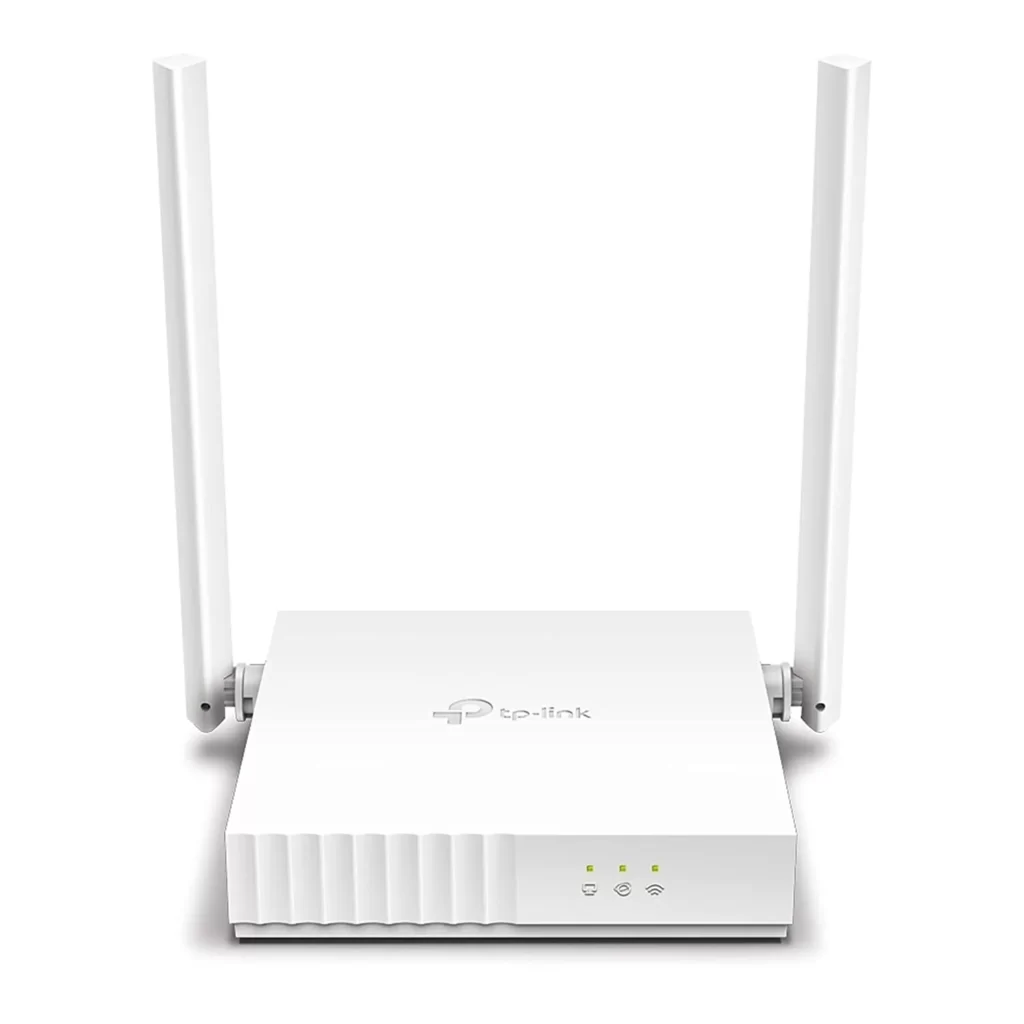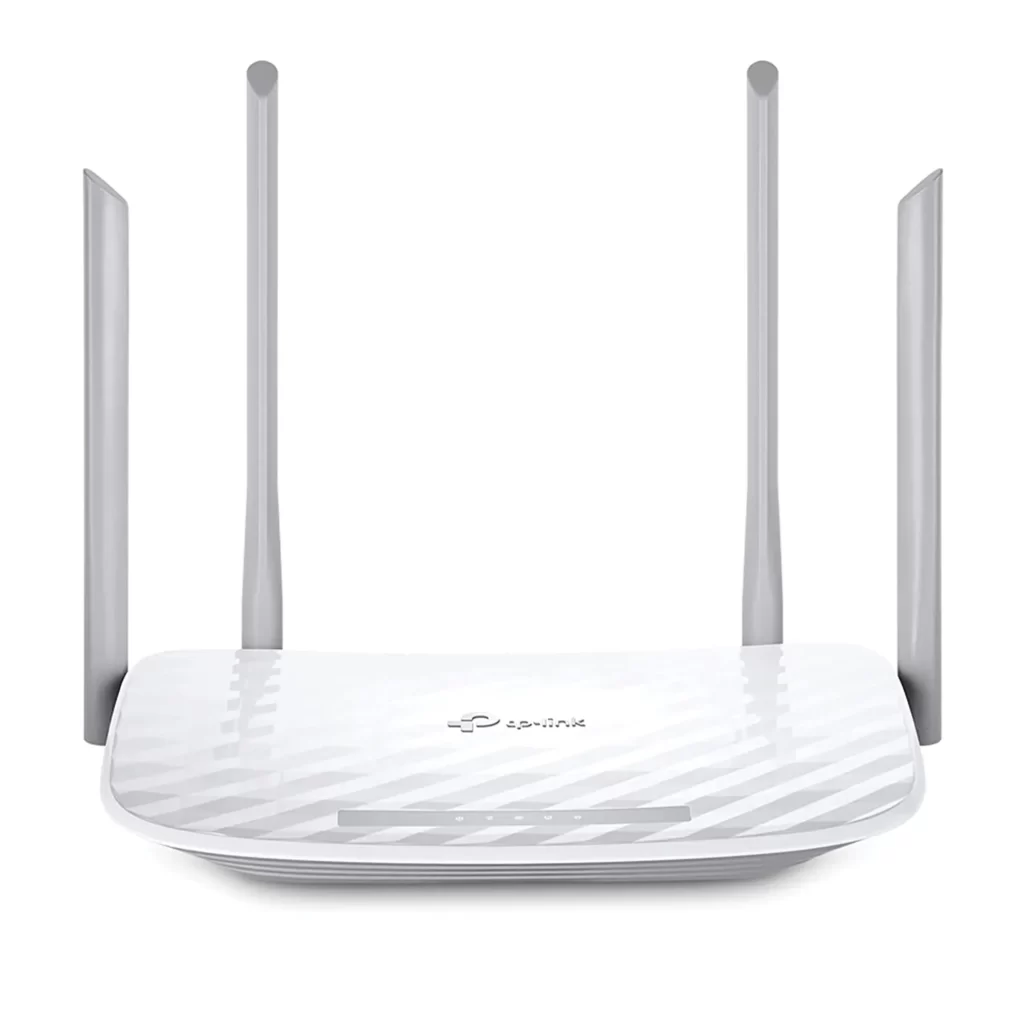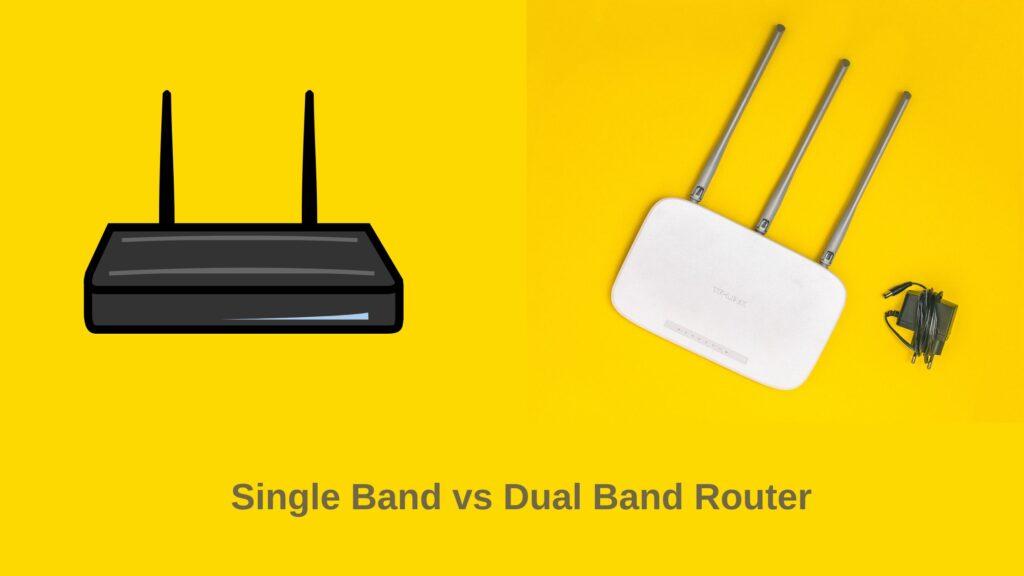There’s no doubt that if you want to experience high-speed and consistent internet, you’ll have to pick the best router. While we know a mobile device can provide you with a good internet speed, that’s very inconsistent, and that becomes more inconsistent when the majority of people use it at the same time.
Choosing the right type of router can be easy if the buyer knows what they’re buying it for, but people still get stuck between single band vs dual band routers. They feel that a dual-band router is always good, to be honest sometimes a single-band router is also good for some buyers.
It means What if a person has some devices that only support single band frequency and he bought a dual-band router? As a result, it would be unworthy.
So in this article, we’ll be seeing what the differences are between a single-band vs dual-band router, which one you should buy, the advantages and disadvantages of each, and everything else.
What is a single band router?

The Institute of Electrical and Electronics Engineers (IEEE) invented this Wi-Fi technology. Commercially, it was released in 1999 with the collaboration of the Apple iBook series laptop. The first version of this technology was “802.11 – 1997”.
A single-band router is a type of router that offers only a single frequency band(2.4GHz) and is more inexpensive than others.
Sometimes not all people need high-speed internet, so they can buy it for their light use.
However, I’m not saying a single one only offers very slow internet; it can deliver max 800 Mbps of internet, and that is sufficient for home use, individual use, multiple tasking and browsing, etc. But when it comes to connecting more devices simultaneously, it can’t handle it properly. So at that time, a dual-band router will be required.
What is a dual band router?

A dual-band (2.4/5 GHz) router was introduced in 2008.
The dual-band router is a new technology that offers both 2.4 GHz and 5 GHz speeds. This is more expensive than a single band.
Being supported by dual bands, it offers high-speed internet, no matter who you are or what type of work you are going to do. It can be used for live gaming streaming, office use, home use, and many more cases. The newer dual-band wifi 6e (802.11 Axe) offers a maximum speed of 5.4 GB/s; however, it may depend on the quality of the routers and how they were optimized. You can get around 100 feet of indoor coverage.
The definitive difference between Single band vs dual band router
As we know the single-band router is inexpensive and the dual-band router is expensive. Along with price differences, there are too many more differences between single-band vs dual-band routers. Here are some most important differences between these two types of routers.
Compatibility
Dual band
Not all smartphones, pc, laptops, tab and other smart devices support both 5 GHz and 2.5 GHz frequencies. The majority of the older devices only support 2.5 GHz routers.
If somebody wants to connect to the 5 GHz frequency his device has to be supported it.
Single band
This signal strength has been being used on all devices for a long time and is more compatible than dual band routers as it is present on all devices.
Performance and network Speed
Dual-band
As it is a new technology, it is more powerful, provides better downloading and uploading speeds, offers a lag-free 4k and 3d gaming and video-watching experience and it can be used by many people at the same time. It allows you to use both. You can switch according to your needs which type of work you’re going to do. It offers up to 5.4 gb/s internet speed.
Single band
On the other hand, a single-band router is slower than a double-band router because it is designed for casual and light uses. But still, I saw many people use it for their businesses (cyber cafes, mini computer centres, etc.).
It only provides a maximum of 800 mb/s speed.
Coverage
Dual-band
Since it was built for high-speed internet connection, that’s why it also has an available wider range of coverage than a single-band router. It’s important to note that wifi coverage can depend on many factors: the total number of your walls, how your router’s antenna power is, etc. But still, if you buy the best router you’ll definitely get wider and longer coverage.
Single band
On the other hand, a single-band router has been used since it was created, but with the progress of technology, scientists developed the most powerful router than it. So, if we compare the single band router’s coverage with the dual band router, it has less coverage
The total number of channel
Dual band
When it comes to providing a good internet connection, It is most important that your router has multiple frequency channels. These channels help you to provide the best internet connection as well as Better signal strength.
The dual band router has a total of 23 channels, which is why it’s suitable for connecting multiple devices at the same time.
Single band router
Since it’s a single band and has only one 2.5 GHz frequency band, its total number of channels is 11, and that’s not sufficient for crowded and complex situations.
Single band and dual band router advantages and disadvantages
Advantages of Dual band router
- It can be used for individual purposes as well as business and other complex activities. No matter which purpose you’re going to buy it for, you’ll get a lag-free experience.
- It provides faster internet without having any issues because it has a less crowded frequency (5 GHz).
- It is more stable and consistent than other routers, with a total of 23 frequency channels.
- It offers solid privacy and security, which means it’s not easy to hack. It has WPA2 encryption that prevents it from hacking.
Disadvantages of dual-band routers
- It isn’t available at an affordable price point. It’s more expensive than single-band routers, and that’s why the person who wants to buy the best router might not be able to buy it.
- A non-technical user cannot install it properly because, according to our research, it’s complex to install and buyers should have technical knowledge about it.
- This may be an inappropriate product for those who don’t have dual-band frequencies on their routers.
Advantages of a single-band router
- A single-band router is compatible with all smart devices that have internet access functions. It means it can be used with all devices.
- It’s easy to install, and buyers don’t have to have more technical knowledge. Anyone can install it by reading its own user manual.
- The most important reason why people buy it instead of a dual-band router is that it’s inexpensive and anyone can afford it.
- It’s the best option for those who want to use it for video watching, casual gaming, and internet browsing and who have a small apartment.
Disadvantages of single-band routers
- The major drawback of a single-band router is its limited device support. When some devices connect to this router simultaneously, it becomes slow.
- This router can’t handle high traffic or critical situations. When people watch high-resolution videos like 4K or 3D and play high-graphic games at that time, their computers struggle a lot.
- It’s only 2.5 GHz, and that’s why its signal strength and network coverage aren’t good.
Which is a better single band or dual band router?
before buying a router you should not search on the internet which is best dual band vs single band. It depends on various factors; suppose you’re a person who only scrolls Instagram, browses, watches videos, or plays games, then you don’t need to buy an expensive or dual-band router. And if you have a small apartment and most of your family members use your wifi for all tasks except watching high-end videos and playing high-end games, a single-band router can easily fulfil all your tasks.
On the other hand, if you can strengthen your budget and most of your work are heavy, such as watching 4K videos or playing high-graphics games, and all of your family members or your workers use your internet at the same time and they also consume complex tasks. Then you’ll definitely have to purchase a dual-band router.
Frequently asked questions about a single band vs dual band router
Does a dual-band router increase speed?
Yes, a dual-band router can increase the speed of your internet because it u better speed because every wall isn’t the same. If the wall is thin, you’ll get better speed, but if your wall is thicker, you won’t get better speed.ses a less crowded 5 GHz frequency that can produce the best internet speed.
Does 5GHz Wi-Fi go through walls?
5 GHz wifi can penetrate through the wall, but sometimes you won’t get
How many devices can connect to 5GHz WiFi?
There’s no exact number, but still, 45 to 50 devices can be connected with 5 GHz wifi.
What is the power limit for 5GHz Wi-Fi?
A maximum power limit of 5 GHz wifi is around 200 mW (23 dBm).
What is the minimum distance for the router?
It depends on where your router is and where you are using it. If you use it indoors, you’ll get around 150 feet of maximum coverage and 300 feet outdoors.


